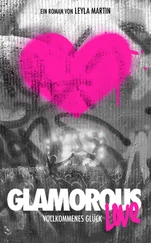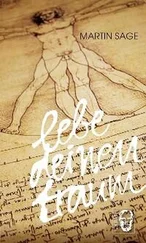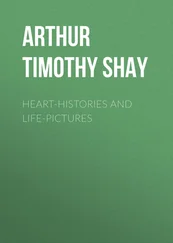Harriet Martineau - Eastern Life
Здесь есть возможность читать онлайн «Harriet Martineau - Eastern Life» — ознакомительный отрывок электронной книги совершенно бесплатно, а после прочтения отрывка купить полную версию. В некоторых случаях можно слушать аудио, скачать через торрент в формате fb2 и присутствует краткое содержание. Жанр: unrecognised, на английском языке. Описание произведения, (предисловие) а так же отзывы посетителей доступны на портале библиотеки ЛибКат.
- Название:Eastern Life
- Автор:
- Жанр:
- Год:неизвестен
- ISBN:нет данных
- Рейтинг книги:5 / 5. Голосов: 1
-
Избранное:Добавить в избранное
- Отзывы:
-
Ваша оценка:
- 100
- 1
- 2
- 3
- 4
- 5
Eastern Life: краткое содержание, описание и аннотация
Предлагаем к чтению аннотацию, описание, краткое содержание или предисловие (зависит от того, что написал сам автор книги «Eastern Life»). Если вы не нашли необходимую информацию о книге — напишите в комментариях, мы постараемся отыскать её.
Eastern Life — читать онлайн ознакомительный отрывок
Ниже представлен текст книги, разбитый по страницам. Система сохранения места последней прочитанной страницы, позволяет с удобством читать онлайн бесплатно книгу «Eastern Life», без необходимости каждый раз заново искать на чём Вы остановились. Поставьте закладку, и сможете в любой момент перейти на страницу, на которой закончили чтение.
Интервал:
Закладка:
The contrast is great between these gardens and the sites of Cleopatra's Needle and Pompey's Pillar – curiosities which need not be described, as everyone has seen them in engravings. The Needle stands on the burning sands, close to the new fortification wall, whose embankment is eighty feet high, and now rapidly enclosing the town. The companion obelisk, which was offered to England, but not considered worth bringing away, is now buried in this embankment. There it will not decay; for there is no such preservative as the sand of Egypt. When, and under what circumstances, will it again see the light? In a time when it may be recognised as an object known now? or in an age so distant as that the process of verification must be gone over again? Everyone now knows that these obelisks are of the time of the early Pharaohs, some of whose names they bear inscribed; that they stood originally at Heliopolis, and were transported to Alexandria by the Caesars.
The Pillar stands in a yet more desolate place. We reached it through the dreariest of cemeteries, where all was of one dust-colour – even to the aloe which was fixed upon every grave. The graves were covered with mortar, much of which was broken and torn away. A Christian informant told us that this was done by foxes and dogs; but a Mohammedan declared that such ravage was prevented by careful watching. There is a rare old book which happily throws light on what this Pillar was. In the twelfth century, while the Crusaders were ravaging Syria, a learned physician of Bagdad, named Abdallatif, visited Egypt, and dwelt a considerable time there. He afterwards wrote an admirable account of whatever he himself saw in the country; and his work has been translated by some Arabic scholars. The best translation is by De Sacy (Paris, 1810). Abdallatif tells us that the column (now called by us Pompey's Pillar), which is so finely seen from the sea, was called by the Arabs »the pillar of the colonnades«; that he had himself seen the remains of above four hundred columns of the same material lying on the margin of the sea; and he tells us how they came there. He declares that the governor of Alexandria, the officer put in charge of the city by Saladeen, had overthrown and broken these columns to make a breakwater! »This«, observes Abdallatif, »was the act of a child, or of a man who does not know good from evil.« He continues: »I have seen also, round the pillar of the colonnades, considerable remains of these columns; some entire, others broken. It was evident from these remains that the columns had been covered by a roof which they supported. Above the pillar is a cupola supported by it. I believe that this was the Portico where Aristotle taught, and his disciples after him; and that this was the Academy which Alexander erected when he built the city, and where the Library was placed which Amrou burned by the permission of Omar.« 2De Sacy reminds us that the alleged destruction of this portico must have taken place, if at all, at most thirty years before the visit of Abdallatif; so that as »all the inhabitants of Alexandria, without exception«, assured that traveller of the fact, it would be unreasonable to doubt it. 3He decides that here we have the far-famed Serapéum. – From the base of the Pillar the view was curious to novices. The fortifications were rising in long lines, where groups of Arabs were at work in the crumbling, whitish, hot soil; and files of soldiers were keeping watch over them. To the south-east, we had a fine view of Lake Mareotis, whose slender line of shore seemed liable to be broken through by the first ripple of its waters. The space between it and the sea was one expanse of desolation. A strip of vegetation – some marsh, some field, and some grove – looked well near the lake; and so did a little settlement on the canal, and a lateen sail, gliding among the trees.
We had a better view than this, one morning, from the fort on Mont Cretin. I believe it is the best point for a survey of the whole district; and our thinking so seemed to give some alarm to the Arabs, who ceased their work to peep at us from behind the ridges, and watch what we did with telescope, map, and compass. The whole prospect was bounded by water, – by the sea and Lake Mareotis, – except a little space to the north-east; and that was hidden by an intervening minaret and cluster of houses. Except where some palms arose between us and Lake Mareotis to the south, and where the clustered houses of the town stood up white and clear against the morning sky, there was nothing around us but a hillocky waste, more dreary than the desert, because the dreariness here is not natural but induced. If we could have stood on this spot no longer ago than the times of the Ptolemies (a date which we soon learned to consider somewhat modern), it would have been more difficult to conceive of the present desolation of the scene than it now is to imagine the city in the days of its grandeur. On the one hand, we should have seen, between us and the lake, the circus, with the multitude going to and fro; and on the other, the peopled gymnasia. Where Pompey's Pillar now stands alone, we should have seen the long lines of the colonnades of the magnificent Serapéum. On the margin of the Old Port, we should then have seen the towers of the noble causeway, the Heptastadium, which connected the island of the Pharos with the mainland. The Great Harbour, now called the New Port, lay afar this day, without a ship or boat within its circuit; and there was nothing but hillocks of bare sand round that bay where there was once a throng of buildings and of people. Thereabouts stood the temple of Arsinoë, and the Theatre, and the Inner Palaces; and there was the market. But now, look where we would, we saw no sign of life but the Arabs at work on the fortifications, and a figure or two in a cemetery near. The work of fortification itself seems absurd, judging by the eye; for there appears nothing to take, and therefore nothing to defend. Except in the direction of the small and poor-looking town, the area within the new walls appears to contain little but dusty spaces and heaps of rubbish, with a few lines of sordid huts, and clumps of palms set down in the midst; and a hot cemetery or two, with its crumbling tombs. I have seen many desolate-looking places, in one country or another; but there is nothing like Alexandria, as seen from a height, for utter dreariness. Our friends there told us they were glad we stayed a few days, to see whatever was worth seeing, and be amused with some African novelties; for this was the inhabitants' only chance of inspiring any interest. Nobody comes back to Alexandria that can help it, after having seen the beauty of Cairo, and enjoyed the antiquities of Upper Egypt. The only wonder would be if anyone came back to Alexandria who could leave the country in any other way.
Before we quitted Mont Cretin this morning, we looked into a hollow where labourers were digging, and saw them uncover a pillar of red granite, – shining and unblemished. Some were picking away at the massive old Roman walls, for the sake of the brick. It is in such places that the traveller detects himself planning wild schemes for the removal of the dust, and the laying bare of buried cities all along the valley of the Nile.
During the four days of our stay at Alexandria, we saw the usual sights: – the Pasha's palace; the naval arsenal; and the garden of the Greek merchant where the Pasha goes 4often to breakfast; and we enjoyed the hospitality of several European residents. We also heard a good deal of politics; not a word of which do I mean to write down. There is so much mutual jealousy among the Europeans resident in Egypt, and, under the influence of this jealousy, there is so little hope of a fair understanding and interpretation of the events of the day, that the only chance a stranger has of doing no mischief is by reporting nothing. I have my own impressions, of course, about the political prospects of Egypt, and the character of its alliance with various European powers; but while every word said by anybody is caught up and made food for jealousy, and a plea for speculation on the future, the interests of peace and good-will require silence from the passing traveller, whose opinions could hardly, at the best, be worth the rancour which would be excited by the expression of them.
Читать дальшеИнтервал:
Закладка:
Похожие книги на «Eastern Life»
Представляем Вашему вниманию похожие книги на «Eastern Life» списком для выбора. Мы отобрали схожую по названию и смыслу литературу в надежде предоставить читателям больше вариантов отыскать новые, интересные, ещё непрочитанные произведения.
Обсуждение, отзывы о книге «Eastern Life» и просто собственные мнения читателей. Оставьте ваши комментарии, напишите, что Вы думаете о произведении, его смысле или главных героях. Укажите что конкретно понравилось, а что нет, и почему Вы так считаете.












